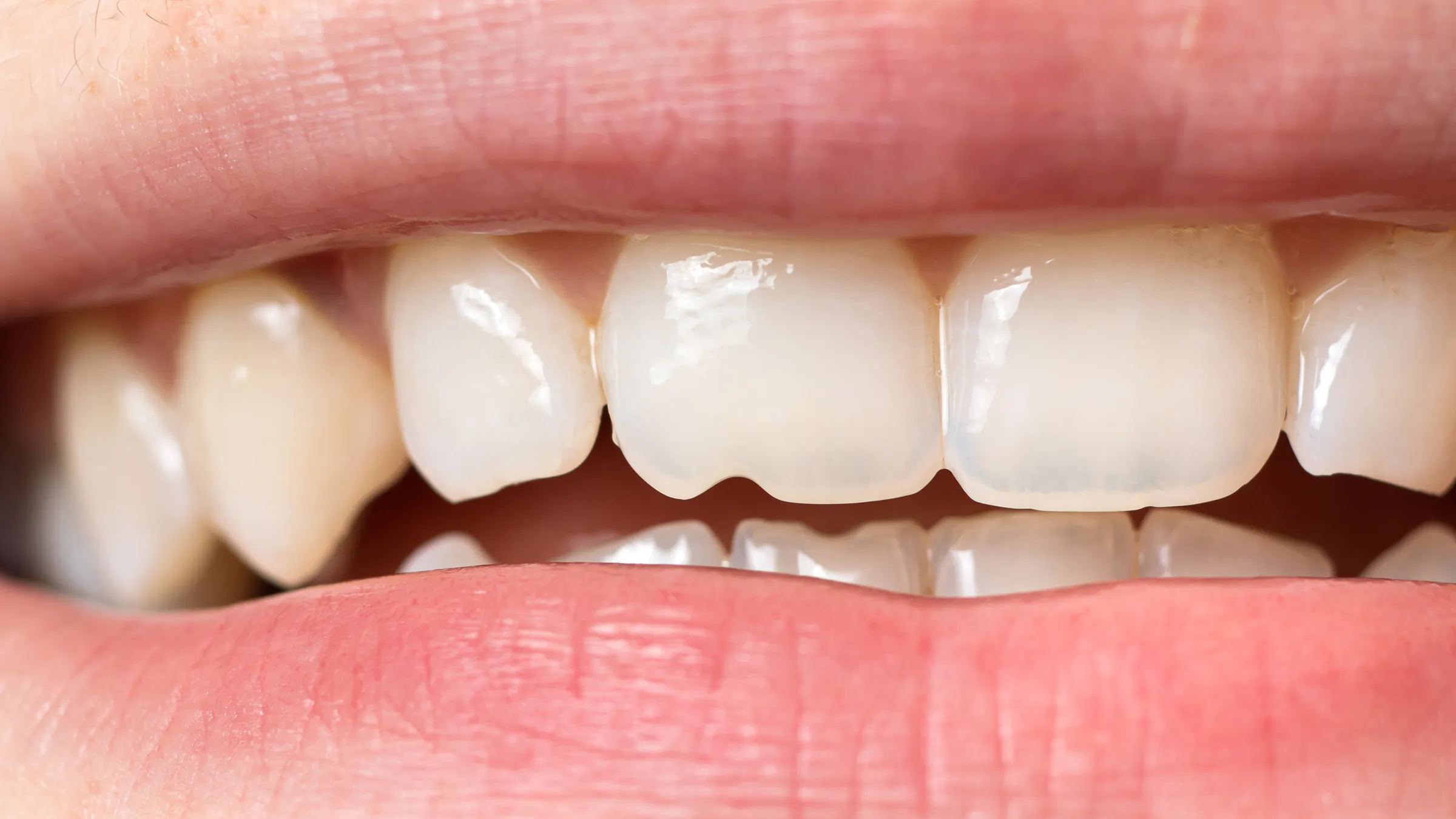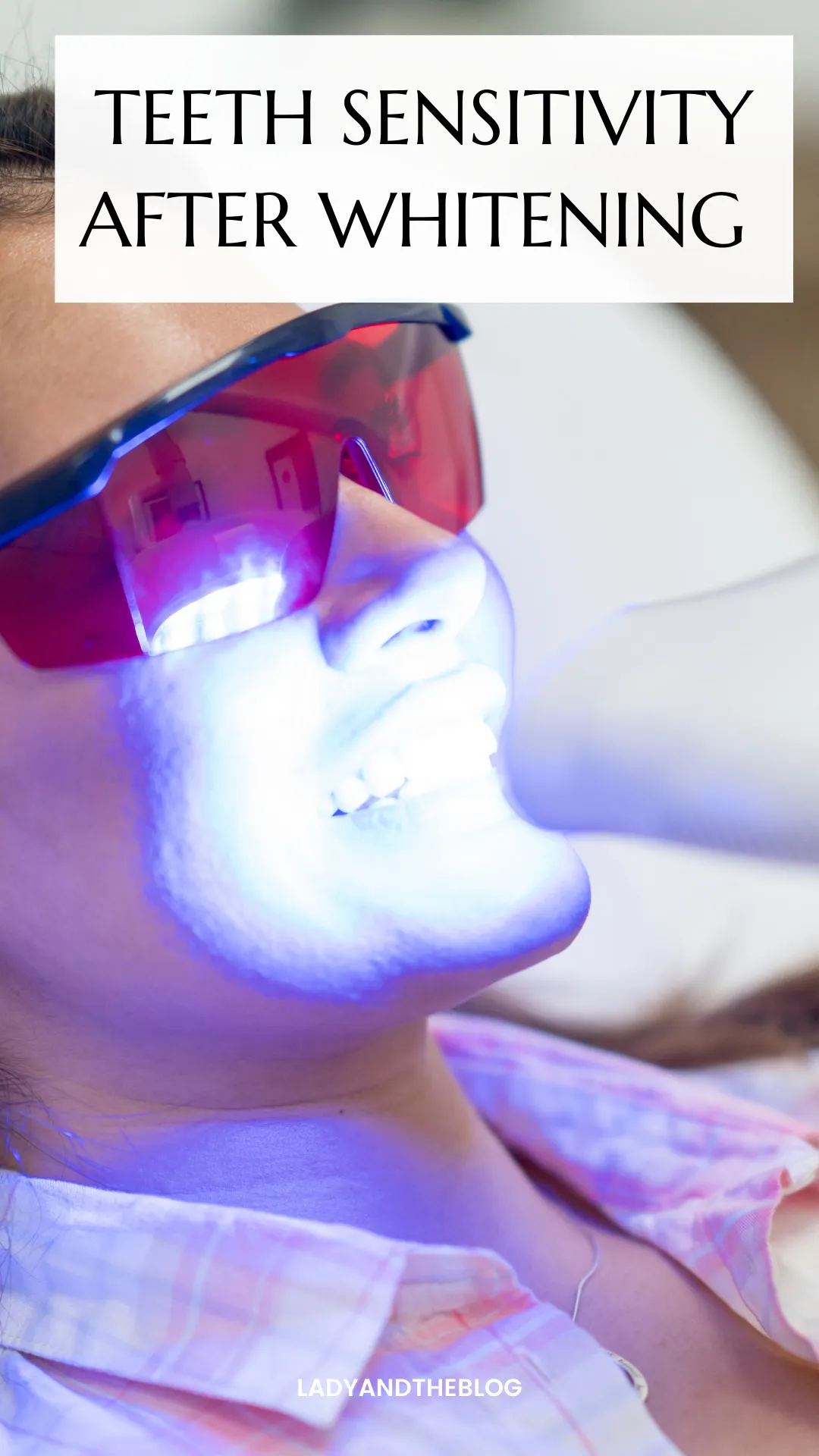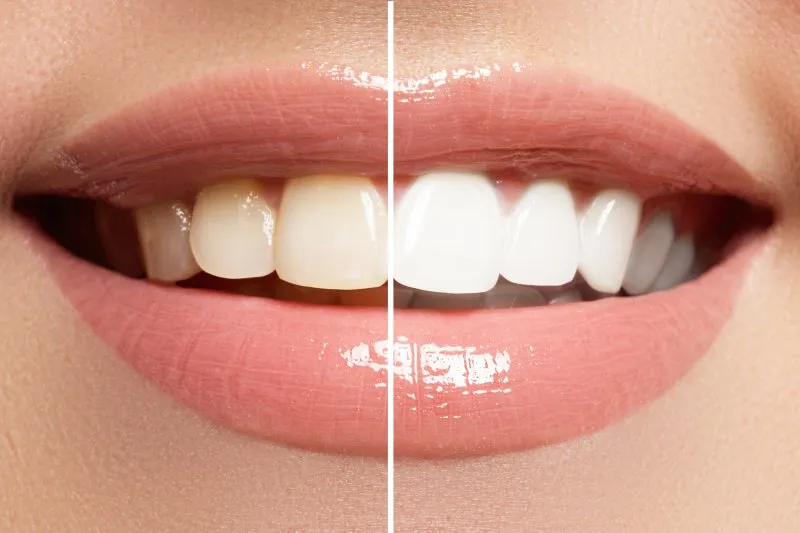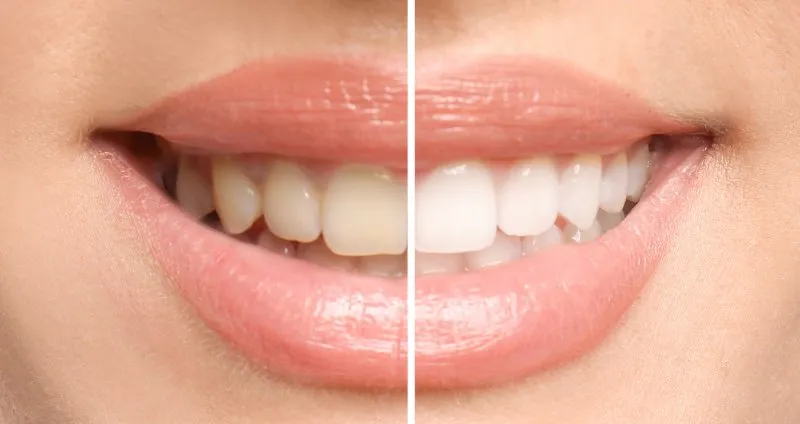What Causes Teeth Sensitivity After Whitening?
Teeth whitening, while a popular cosmetic procedure, can sometimes lead to temporary tooth sensitivity. This occurs because the whitening agents, typically hydrogen peroxide or carbamide peroxide, penetrate the enamel and dentin of the teeth. These agents break down stains, but in the process, they can also irritate the nerves within the teeth. This irritation is what causes the sharp, shooting pains or heightened sensitivity that some people experience after teeth whitening. Understanding the root causes is crucial in managing and minimizing discomfort during and after the procedure. The process is designed to be effective, but it’s essential to be aware of the potential side effects and how to mitigate them for a more comfortable experience.
The Whitening Process and Tooth Sensitivity
The whitening process itself is a key factor in understanding why teeth sensitivity occurs. Whitening agents work by oxidizing the discolored molecules within the tooth structure. This oxidation process breaks down the stains, leading to a brighter smile. However, this process can also cause the pores in the enamel to open temporarily. When the pores are open, the nerves inside the teeth become more exposed to external stimuli like temperature changes and air. This heightened exposure triggers the sensitivity response. The intensity of sensitivity can vary widely, depending on the concentration of the whitening agent, the duration of the treatment, and the individual’s tooth structure and sensitivity threshold.
Factors Influencing Sensitivity

Several factors can influence the level of sensitivity experienced after teeth whitening. The concentration of the whitening agent plays a significant role; higher concentrations often lead to more intense sensitivity. The method of whitening, whether it’s in-office, at-home trays, or over-the-counter strips, also affects the degree of sensitivity. Individuals with pre-existing tooth sensitivity, gum recession, or thin enamel may experience more discomfort. Moreover, how the whitening product is applied – ensuring the product doesn’t come into contact with the gums – and how long the treatment lasts can influence the sensitivity levels. Also, the overall oral health, including any existing dental issues such as cavities or cracks in the teeth, can make teeth more susceptible to sensitivity during and after the process.
How Long Does Teeth Sensitivity Last?
The duration of teeth sensitivity after whitening varies from person to person, but it is typically a temporary side effect. In most cases, sensitivity peaks within a few days of the whitening treatment. The good news is that the sensitivity usually subsides within a few days to a couple of weeks. The exact timeframe depends on several factors, including the individual’s sensitivity levels before the procedure and the specific whitening method used. If the sensitivity persists for an extended period, or if it becomes severe, it’s essential to consult a dentist. They can help assess the situation and recommend appropriate solutions to alleviate the discomfort and protect the teeth.
Typical Timeline for Sensitivity
Generally, the sensitivity from teeth whitening follows a predictable timeline. Initially, sensitivity may start to become noticeable within hours or a day after the treatment. The intensity often increases over the first few days, reaching its peak. After this peak, the sensitivity typically begins to decrease gradually. The discomfort usually diminishes within a week, but in some cases, it can take up to two weeks or more to fully resolve. During this period, adopting sensitivity management strategies, such as using sensitive toothpaste or avoiding triggering foods and drinks, is highly recommended to ensure comfort and expedite the recovery process.
Factors Affecting Sensitivity Duration

Several elements can influence how long teeth sensitivity lasts. The concentration of the whitening agent used is a primary factor; higher concentrations may lead to prolonged sensitivity. The application method also plays a role, as some methods allow better control over the whitening agent’s contact with the teeth and gums. Furthermore, the individual’s oral health is significant; those with pre-existing sensitivity, gum recession, or thin enamel may experience longer-lasting sensitivity. Adhering to post-whitening care instructions, like using sensitivity-specific toothpaste and avoiding acidic foods, also helps. Following these guidelines, alongside proper dental care, will contribute significantly to a shorter and more comfortable recovery period.
5 Ways to Manage Teeth Sensitivity After Whitening
Managing teeth sensitivity after whitening is crucial for comfort and can help minimize discomfort. Several strategies can be employed to alleviate sensitivity and promote faster recovery. Some people may experience sensitivity but with the correct approach, the side effects are temporary and manageable. The most common and effective ways to handle it include switching to sensitivity toothpaste, avoiding temperature extremes, using fluoride treatments, and adjusting dietary habits. These steps, when followed properly, can make the experience more pleasant and reduce the duration of the discomfort experienced. If problems persist, be sure to consult a dentist.
Over-the-Counter Products
Several over-the-counter products can help manage teeth sensitivity after whitening. Sensitivity toothpastes are formulated to block the tubules in the dentin, reducing nerve exposure and minimizing sensitivity. These toothpastes often contain ingredients like potassium nitrate or stannous fluoride, which desensitize the nerves. Fluoride mouthwashes can also strengthen enamel, making teeth less susceptible to sensitivity. Using a soft-bristled toothbrush is another simple yet effective way to avoid irritation. You should also avoid using whitening toothpaste immediately after the treatment, as it can exacerbate sensitivity. Always follow the instructions of the products and, if possible, consult your dentist for recommendations.
Professional Treatments

If over-the-counter solutions are insufficient, professional treatments can offer more robust relief from teeth sensitivity. Dentists can apply fluoride treatments, which help to strengthen enamel and desensitize teeth. Another option is the use of desensitizing agents or varnishes directly on the teeth, providing a protective barrier against stimuli. In some cases, dentists may recommend custom-fitted trays filled with a desensitizing agent to be worn for a short period. For those with more severe sensitivity, your dentist can also consider other procedures. These professional treatments provide targeted solutions to manage sensitivity effectively and often deliver quicker relief compared to at-home remedies. Always consult your dentist for the best course of action.
Dietary Adjustments
Making adjustments to your diet can also play a significant role in managing teeth sensitivity after whitening. Avoiding extremely hot or cold foods and beverages is crucial. These temperature extremes can trigger or exacerbate sensitivity. Acidic foods and drinks, such as citrus fruits, carbonated beverages, and vinegar, can also erode enamel, making teeth more sensitive. It’s advisable to avoid these items, especially during the initial days after whitening. A balanced diet rich in calcium and other minerals helps to strengthen the enamel, contributing to overall oral health and reducing sensitivity. Consider also chewing sugar-free gum to promote saliva production, which helps neutralize acids in the mouth.
Best Practices to Avoid Sensitivity
Preventing or minimizing teeth sensitivity begins before the whitening treatment. Consult your dentist before undergoing any whitening procedure. They can assess your oral health and identify potential risk factors for sensitivity. If you have any existing dental issues, address them before whitening. This may involve treating cavities or managing gum disease. Choosing a whitening method that suits your needs is also important. For those prone to sensitivity, lower-concentration whitening agents may be a better choice. Following pre- and post-whitening instructions from your dentist, including using sensitivity toothpaste before and after, is critical for minimizing discomfort and ensuring a positive experience.
Choosing the Right Whitening Method

Selecting the appropriate whitening method plays a pivotal role in reducing the risk of sensitivity. Professional in-office whitening procedures typically use higher concentrations of whitening agents, which may lead to greater sensitivity. If you have sensitive teeth, you might consider at-home whitening kits with lower concentrations, as they offer more control over the process. Another option is to use whitening toothpastes or strips, which have milder formulations. Discussing your options with your dentist is essential; they can recommend the most suitable method based on your teeth’s condition and sensitivity. When choosing a method, consider your lifestyle, budget, and the level of whitening you desire, always prioritizing your comfort and oral health.
Proper Application and Follow-Up
Proper application and diligent follow-up care are crucial for minimizing sensitivity and achieving the best results from teeth whitening. Following the instructions provided by your dentist or the product manufacturer is vital. This includes adhering to the recommended application time and frequency. Ensure that the whitening agent does not come into contact with your gums, as this can increase sensitivity. After whitening, avoid eating or drinking items that can stain your teeth, such as coffee, tea, and red wine, for the first few days. Regularly using a sensitivity toothpaste and avoiding temperature extremes during the recovery period will help. Schedule regular check-ups with your dentist to monitor your oral health and address any concerns promptly.
When to Seek Professional Help
While temporary sensitivity is common after teeth whitening, it’s essential to know when to seek professional help. If the sensitivity becomes severe or unbearable, you should consult your dentist without delay. If the sensitivity persists for more than a couple of weeks, it’s time to seek professional advice. Any unusual symptoms, such as significant pain or bleeding, should be reported to your dentist. During your appointment, your dentist can evaluate your oral health, identify any underlying issues, and provide appropriate treatment. They may recommend specific treatments, such as fluoride applications or desensitizing agents, to relieve your discomfort and ensure your oral health. Never hesitate to consult a dental professional if you have concerns.
